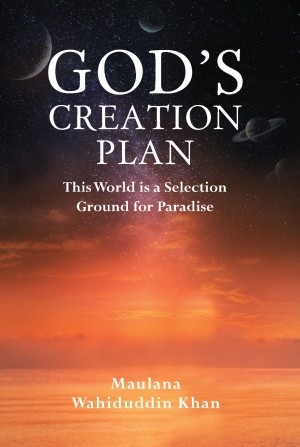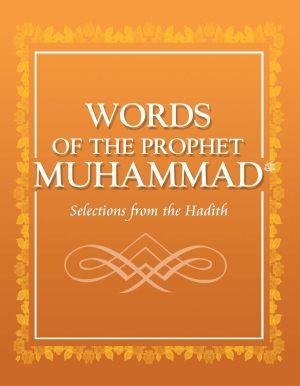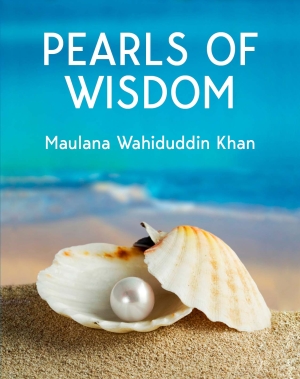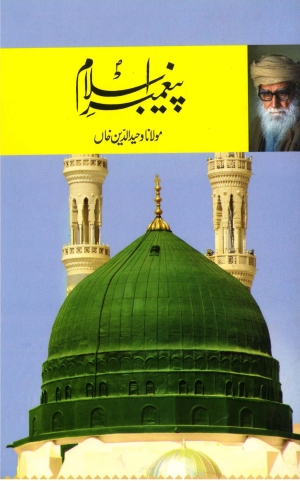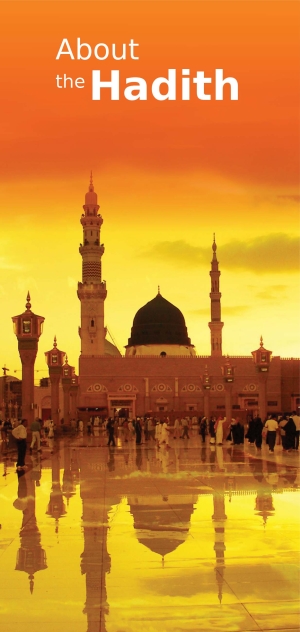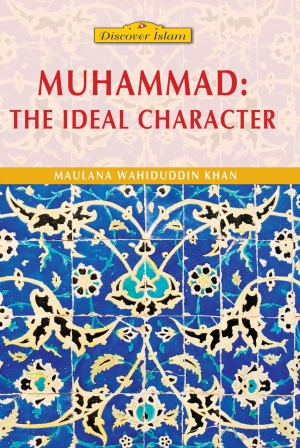Man has been placed on this Earth by God in order that his obedience to his Maker may be put to the test. For this purpose, he has been given complete freedom to tread the paths of both good and evil. He has his choice. However, to follow the path desired for him by God, man needs guiding principles. The true source of guidance, according to Islam, is to be found in prophethood. Throughout human history, God, in His infinite Mercy, has selected certain individuals to communicate His message to humanity so that all human beings might be enabled to follow the right path. These chosen people were called prophets or messengers. They received God's message through His angel and then conveyed it to their people.
All the prophets, according to Islam, brought the same basic Truth: that there is only one God and that all human beings are accountable to God for their actions: when Doomsday finally comes, they will be judged by Him according to their good and bad deeds. Therefore, God shall reward those who believe in Allah and His Prophet in the next world. While God shall punish those, who disbelieve in the next world according to their deeds on Earth.
"God chooses to Himself whom He will, and guides to Himself those that repent." (42:13)
God's messengers came in every age and to every region. According to a hadith, nearly 1,24,000 messengers were sent to guide the people to the right path, starting with Adam and ending with the prophet Muhammad. The prophets mentioned by name in the Quran are two dozen in number. In the past, the need for new prophets had arisen because God's religion was no longer in its pristine form, having been distorted in many different ways. Therefore, new prophets had to come to the world periodically to revive the true spirit of religion and thus restore it to its original form. After the Prophet Muhammad, there was no need for another prophet, for the Book— the Quran— which he gave to the world has been preserved in its original form. This is the concept of Prophethood in Islam.
Featured Articles
Featured Videos
FAQs
A prophet is one who has been selected to represent God on earth. When God chooses a human being as His messenger, His angel comes to him to inform him of this selection. In this way, he is left in no doubt that he is indeed God’s messenger. Afterwards God sends him His teachings through the angel so that he may inform all human beings of God’s will. The prophet is an intermediary between God and man. He takes from God His message and conveys it to human beings.
God has bestowed human beings with reason but, through reason alone, an individual cannot understand the deeper realities of the present life. So far as God and the world Hereafter are concerned, this is totally related to the invisible world and as such, these things are beyond human reason and understanding. What the prophet does is fulfill this need of every individual. The Prophet informs a person of the realities of life and of the world Hereafter. In this way, he enables people to plan their life in the full light of divine knowledge.
From the time that people inhabited this world, the prophets started arriving in every age. They told humans of God’s will but, there are no authentic records of the teachings of the prophets of ancient times. The later circumstances failed to authenticate their personalities as factually historical and their books also suffered the same fate.
Finally, God chose the Prophet Muhammad as His Messenger. He was born at a time when world history had begun to be put on record. Subsequently, with the invention of the printing press, he became widely acknowledged as a historically established figure, and the Book divinely revealed to him, was preserved for all eternity. Ultimately, there was no possibility that any changes could be made in this divine book he had brought to the world. The Prophet Muhammad was the final messenger to humanity. No prophet will come after him.
Source: The Spirit of Islam
The prophethood chain ended with the last prophet, the Prophet Muhammad, but the prophetic mission continues as before. After the last prophet, God’s message must continue to be conveyed to humanity in every age and generation, which must continue until the Day of Judgment. This task is for the ummat-e-muhammadi, the followers of the Prophet Muhammad, to undertake. This witnessing continues the Prophet’s mission after he leaves this world. This task can be carried out properly only in a spirit of honesty and well-wishing. Honesty means nothing should be added to or mixed with the divine message. Well-wishing here means that those who witness Truth must be impelled, even on a purely unilateral basis, by a concern for the genuine well-being of the madu, those whom they call towards God so that the latter can have no reasonable ground to deny this call. This responsibility of the ummah of the Prophet Muhammad is explained in the Quran as follows: “Thus We have made you a middle nation so that you may act as witnesses for humanity, and the Messenger may be a witness for you.” (2:143) From this, we learn that as a ‘middle nation,’ the ummah of the Prophet Muhammad is an intermediary between the last prophet and later generations. It takes God’s religion from the last of the prophets and conveys it to later generations without expecting any recompense and engaging in this task until the Day of Judgment. This conveying of God’s religion is not a simple announcement. Instead, the religion must be conveyed, as the Quran (4:63) says, in such terms as will address people’s minds.
Source: Dawah Made Simple
Yes. Prophethood or Risalah is a fundamental article of faith in Islam. A Muslim should believe in Prophethood and in all the prophets sent by God and make no distinction between them.
Man has been placed on this earth by God in order that his obedience to his Maker may be put to the test. For this purpose, he has been given complete freedom to tread the paths of either good or evil. He has a choice. But to follow the path desired for him by God, man is in need of guiding principles. The true source of guidance, according to Islam, is to be found in prophethood. Throughout human history, God in His infinite mercy selected certain individuals to communicate His message to humankind, so that all human beings might be given an opportunity to follow the right path. These chosen people are called prophets, or messengers.
A prophet is a person chosen by God as His representative. When God appoints someone as His Messenger, He sends His angel to him to inform him of his new status. In that way, the individual can have no doubts about his appointment as God’s apostle. Later, God reveals His message to him through His angels, so that he may communicate the divine teachings to all his fellow men.
Source: The Spirit of Islam





